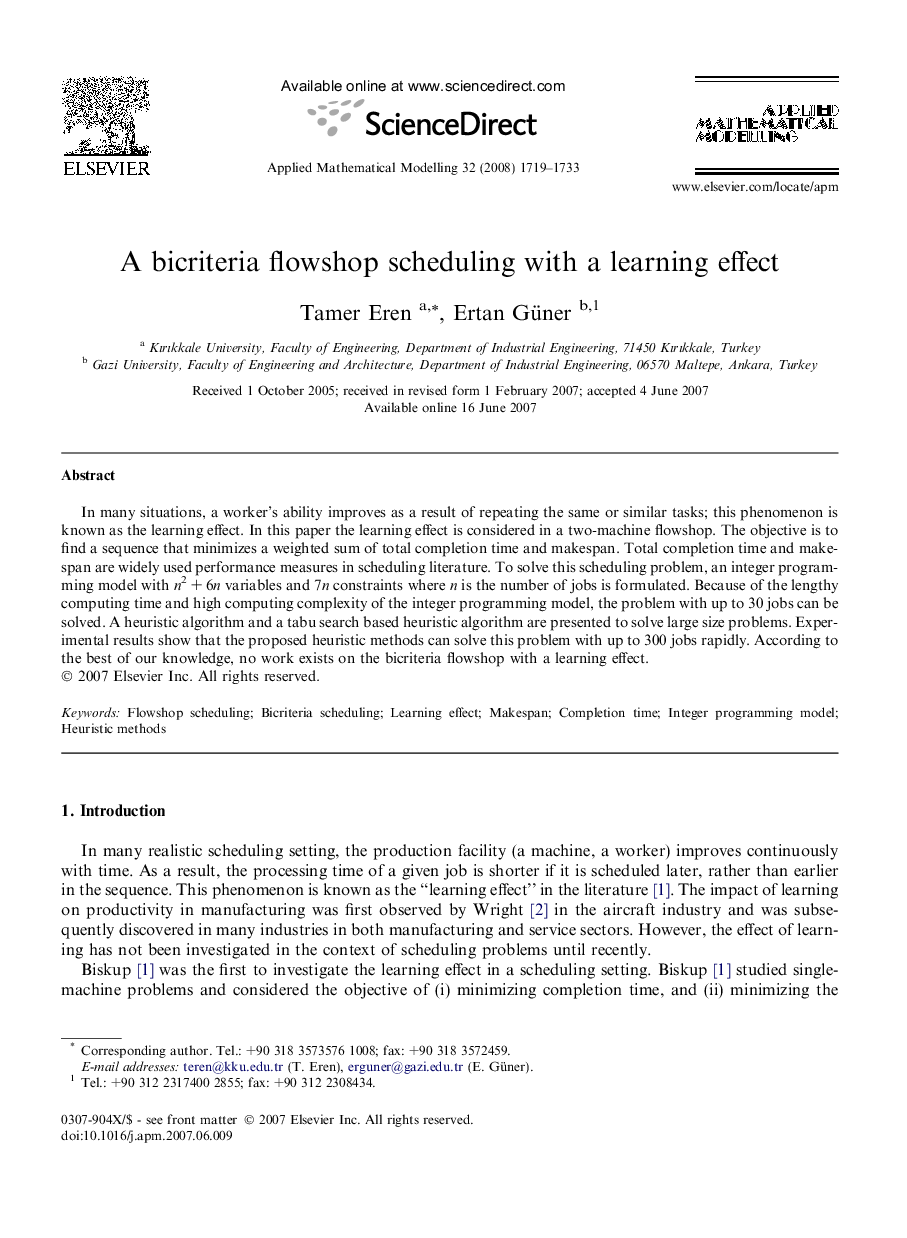| Article ID | Journal | Published Year | Pages | File Type |
|---|---|---|---|---|
| 1706416 | Applied Mathematical Modelling | 2008 | 15 Pages |
In many situations, a worker’s ability improves as a result of repeating the same or similar tasks; this phenomenon is known as the learning effect. In this paper the learning effect is considered in a two-machine flowshop. The objective is to find a sequence that minimizes a weighted sum of total completion time and makespan. Total completion time and makespan are widely used performance measures in scheduling literature. To solve this scheduling problem, an integer programming model with n2 + 6n variables and 7n constraints where n is the number of jobs is formulated. Because of the lengthy computing time and high computing complexity of the integer programming model, the problem with up to 30 jobs can be solved. A heuristic algorithm and a tabu search based heuristic algorithm are presented to solve large size problems. Experimental results show that the proposed heuristic methods can solve this problem with up to 300 jobs rapidly. According to the best of our knowledge, no work exists on the bicriteria flowshop with a learning effect.
